- News
- Reviews
- Bikes
- Accessories
- Accessories - misc
- Computer mounts
- Bags
- Bar ends
- Bike bags & cases
- Bottle cages
- Bottles
- Cameras
- Car racks
- Child seats
- Computers
- Glasses
- GPS units
- Helmets
- Lights - front
- Lights - rear
- Lights - sets
- Locks
- Mirrors
- Mudguards
- Racks
- Pumps & CO2 inflators
- Puncture kits
- Reflectives
- Smart watches
- Stands and racks
- Trailers
- Clothing
- Components
- Bar tape & grips
- Bottom brackets
- Brake & gear cables
- Brake & STI levers
- Brake pads & spares
- Brakes
- Cassettes & freewheels
- Chains
- Chainsets & chainrings
- Derailleurs - front
- Derailleurs - rear
- Forks
- Gear levers & shifters
- Groupsets
- Handlebars & extensions
- Headsets
- Hubs
- Inner tubes
- Pedals
- Quick releases & skewers
- Saddles
- Seatposts
- Stems
- Wheels
- Tyres
- Health, fitness and nutrition
- Tools and workshop
- Miscellaneous
- Buyers Guides
- Features
- Forum
- Recommends
- Podcast
review
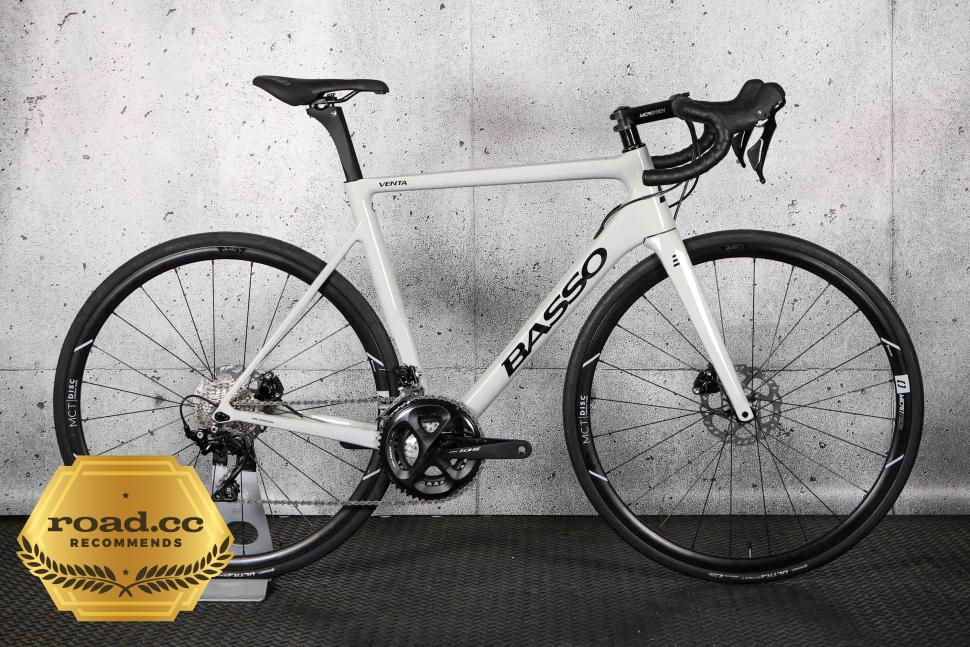 2023 Basso Venta Disc 105.jpg
2023 Basso Venta Disc 105.jpg£2,599.00
VERDICT:
A racy take on an endurance bike, but one that blends performance and comfort well
Very responsive frameset
Great stiffness throughout
Impressive rear end comfort
Basic wheels add weight
Weight:
9,050g
Contact:

This product has been selected to feature in road.cc recommends. That means it's not just scored well, but we think it stands out as special. Go to road.cc recommends
At road.cc every product is thoroughly tested for as long as it takes to get a proper insight into how well it works. Our reviewers are experienced cyclists that we trust to be objective. While we strive to ensure that opinions expressed are backed up by facts, reviews are by their nature an informed opinion, not a definitive verdict. We don't intentionally try to break anything (except locks) but we do try to look for weak points in any design. The overall score is not just an average of the other scores: it reflects both a product's function and value – with value determined by how a product compares with items of similar spec, quality, and price.
What the road.cc scores meanGood scores are more common than bad, because fortunately good products are more common than bad.
- Exceptional
- Excellent
- Very Good
- Good
- Quite good
- Average
- Not so good
- Poor
- Bad
- Appalling
The Basso Venta Disc 105 is a sporty little number, with race-styled geometry and a stiff, firm frameset that responds well to a little kick of the pedals. It's a lot of fun, with plenty of feedback, which gives you the confidence to push it hard through the bends and unleash the power for a bit of sprinting action. In fact, the only thing that's really holding this bike back is the weighty MCT wheelset.
Check out our guide to the best road bikes under £3,000 for more options and to see how the Basso compares.
Basso Venta Disc 105: Ride
There is relaxed geometry, and then there is Basso's relaxed geometry... The Italian company describes this bike as having 'a more relaxed geometry', but when you look at the figures there is no disguising that this bike is heavily influenced by the racy end of the road bike spectrum.
This is noticeable in the ride. The position is low slung and racy without making you feel too stretched out, so you kind of have the best of both worlds, speed and comfort. Plus, its responsive nature means it’s a bike that feels rewarding when riding hard too. It almost goads you into riding it a little harder than you were planning to because it’s fun, but at least you end up with a smile on your face.
A lot of that is down to the stiffness on offer, especially around the lower sections, the down tube, bottom bracket shell and chainstays, which means it feels efficient overall. For such a stiff frame, though, it doesn't feel buzzy or get unsettled by rough road surfaces – testament to how good the carbon fibre grade selection and layup are.
In fact, the Venta is surprisingly comfortable. There is little in the way of high-frequency vibration, and you are left with a smooth-feeling frame and fork and a bike that feels planted on the road, adding to the overall feeling of confidence it gives you to ride fast.
The rear end feels impressively supple, thanks to the slender seatstays, which increases comfort on longer rides.
The only fly in the ointment really is the MCT wheelset. These aluminium wheels are a bit on the weighty side, which just takes the edge off the Venta's performance, especially on the climbs. That said, a frameset of this quality is worthy of a hoop upgrade further down the line, and its price is low enough that even with some carbon deep-section wheels added it's still going to offer decent value for money.
One thing the weight doesn't affect is the descending – if anything, it helps it.
The steering is quickish, sitting somewhere between an endurance bike and a race machine, making it an easy bike to ride downhill fast. And that confidence that the frame and fork bring really helps you let the Venta fly into the bends. Even when things get technical the Venta doesn't feel out of its depth.
The short wheelbase gives a nimble feel to proceedings, and while it's a massive cliché, the Basso really does feel like it handles on rails, especially on very smooth tarmac.
Basso Venta Disc 105: Frame and fork
The Venta's carbon fibre frame is handmade by Basso in Italy, and I personally think it is a good-looking bike with its smooth lines and aero-esque tube profiles. It also looks exceptionally well made throughout: a high-quality frame.
Basso hasn't followed the current trend for running the hoses and cables down though the head tube and headset, instead directing them into the top and side of the down tube before they reappear where required, so it's not quite as clean some. It's not a massive issue for me, and I expect there are plenty of mechanics out there breathing a small sigh of relief.
Many brands offer an integrated seatclamp these days, so it's no surprise to see one on the Venta Disc. Rather than just an expanding internal wedge design like most, the Venta uses Basso's 3B design: a rounded plate sits inside the rear of the seat tube which forms the clamp, while the seatpost has a D-shaped profile at the back to match the seat tube insert. The interaction between all the components gives a very secure fit with no seatpost slippage, and Basso also claims anti-vibration benefits. I can't confirm that, but as I said earlier, this bike does have a comfortable rear end.
For the bottom bracket Basso has gone down the press-fit BB86 route. This means a wider bottom bracket shell than a threaded BSA design, as the bearing cups are pressed inside the frame rather than sitting externally, without increasing the Q-factor (the distance between the pedals).
As well as being wider, the BB shell is also bigger in terms of overall diameter, which makes for a larger surface area where the down tube, seat tube and chainstays join, increasing stiffness.
A neat touch Basso includes is protection film on the drive side of the bottom bracket shell to protect it from chain slippage.
As for mounts and frame extras, you'll not be finding many as the Basso is basically a race bike, so it's a couple of bottle cage mounting points and that's it.
Tyre clearance is good, at 32mm, and you get the usual 12mm thru-axle dropouts and flat-mount brake callipers, as seen on the majority of road and gravel bikes these days.
The Venta Disc is available in seven sizes, from 45 to 61, with corresponding top tube lengths of 505mm through to 590mm.
A 56 comes with a top tube of 560mm and a 180mm top tube, and stack and reach figures of 590.5mm and 385mm respectively.
The head angle is relatively steep at 73.5 degrees, as is the seat angle, to put you into that forward position which helps to get the power down.
Short (402mm) chainstays keeps the rear end of the bike feeling very nimble.
Basso Venta Disc 105: Finishing kit
Our review bike is running Shimano's 11-speed 105 R7000 groupset, but there's a newer model out now that gets the new R7120 12-speed groupset which was released a few weeks back. The new model also comes with a few other changes: Mavic Allroad wheels and Schwalbe Lugano tyres, a Selle San Marco saddle, and Deda Zero bar and stem.
I am currently testing the new 12-speed groupset on another bike and it is very good. To be honest, it doesn't feel much different to the 11-speed version (which is a good thing), but you do get that extra sprocket on the cassette to either extend the range or limit the jumps between gears.
The shifting and braking are still every bit as precise and easy to use as they were on the previous version. Stay tuned for that review, which should be coming in a couple of weeks.
As for the cockpit on our review bike, we have parts from Microtech (MCT), Basso's in-house component brand. It's aluminium alloy, as you'd expect for this kind of money, with no real surprises. The bar is stiff enough, as is the stem, and a comfortable shape.
The seatpost is carbon fibre, and as I said earlier it's shaped to work with the clamping system. The saddle is a Selle Italia Model X, which has a pleasing flowing shape and cutout, although the padding is a little thick for my minimalist tastes.
Basso Venta Disc 105: Wheels & tyres
For the wheels, the Venta again dips into the Microtech parts bin. The MCT Discs feature 30mm-deep alloy rims, basic alloy hubs and Sapim stainless steel spokes. With a claimed weight of 2,030g it's easy to see where a lot of the overall weight of this bike comes from, and an upgrade would make a huge difference to the overall performance of the Basso. (The Mavics on the latest model will save about 150g.)
As they stand, though, they are good wheels; not only are they stiff enough, with no noticeable lateral flex when accelerating or climbing, but they've proved reliable and durable over the test period.
Wrapped around them are Continental Ultra Sport tyres in a 28mm width. This is a mid-range tyre designed to balance performance and durability, something it does well. I've ridden these tyres so many times on various bikes and they are pleasing all-rounders.
Basso Venta Disc 105: Value
This model is priced at £2,599 while the newer 12-speed version is £2,699, which is about the going rate for a carbon fibre framed bike with 105 mechanical.
Ribble's Endurance SL Disc, for instance, costs £2,299 with a Mavic Aksium wheelset and alloy finishing kit, but then that's made in the Far East, not handbuilt in Italy. That's not a slur on the Ribble – we were pretty impressed when we reviewed one way back in 2020, and we all know a huge number of bike manufacturers are based in the likes of Tawain, where there is a huge amount of development, design and high-end production plants. It's just that the whole 'made in Italy' thing brings a premium.
Merida offers some very good value builds; its Scultura 4000 uses the CF3 frame and a Shimano 105 groupset for £2,250, £2,300 for the 12-speed model. It's a similar kind of bike to the Basso, and close in terms of frame weight, too, coming in at just under 1kg.
We recently reviewed the Scultura Limited, a sweet-handling race bike with an impressively comfortable ride, which sits one level above the 4000.
Giant's TCR Advanced Disc 2 has similar geometry to the Venta and a similar build too. It's the same groupset, with shallow alloy wheels, and the frame eschews the full internal cable and hose routing too. It's a touch cheaper at £2,499.
We haven't tested the Advanced 2 Disc, but I was very impressed with the rim brake version.
Basso Venta Disc 105: Conclusion
Although it costs a little more than its rivals, considering its handmade Italian frame the Basso isn't bad value for money. It's definitely a frameset that will respond well to component upgrades over its lifetime.
I love the ride quality, too. It has a great blend of stiffness and performance but not at the expense of comfort. Yes, it's a firm bike, but not excessively so. Basically, if you are after a road bike that blurs the boundaries between race and endurance then it is definitely one worth considering.
Verdict
A racy take on an endurance bike, but one that blends performance and comfort well
If you're thinking of buying this product using a cashback deal why not use the road.cc Top Cashback page and get some top cashback while helping to support your favourite independent cycling website
road.cc test report
Make and model: Basso Venta Disc 105
Size tested: Medium, 545mm
About the bike
List the components used to build up the bike.
Components: Shimano 105 Disc 11x Hydro
Chainset: Shimano 105 11x 34/50t
Disc Brakes: Shimano 105 Hydro
Cassette: Shimano 105 11x 11/34t
Chain: Shimano 105 11x
Saddle: Selle Italia
Handlebar/Stem: MCT
Seatpost: Basso Carbon
Wheelset: MCT Disc Clincher
Tyres: Continental Ultra Sport 700x28c
Tell us what the bike is for and who it's aimed at. What do the manufacturers say about it? How does that compare to your own feelings about the bike?
Basso says, "To those who claim that quality construction and long-lasting performance are concepts available to only a select few, we have just one word: Venta.
"Handmade by Basso with the same extreme attention to quality and detail used to make the most premium frames in the range, the Venta represents a fantastic value proposition. Made to race, made to last, the Venta is built to give lasting performance for years to come."
It's a classically designed road bike that is a lot of fun to ride, balancing perofrmance and comfort.
Where does this model sit in the range? Tell us briefly about the cheaper options and the more expensive options
There are Ultegra and Campagnolo Chorus builds above this one.
Frame and fork
Overall rating for frame and fork
8/10
Tell us about the build quality and finish of the frame and fork?
A well built frame that is very clean inside and looks great from the outside.
Tell us about the materials used in the frame and fork?
Both the frame and fork are carbon fibre.
Tell us about the geometry of the frame and fork?
The geometry is on the racy side of endurance, with relatively steep angles keeping the front end quick and exciting.
How was the bike in terms of height and reach? How did it compare to other bikes of the same stated size?
Stack and reach is fairly typical of this kind of bike.
Riding the bike
Was the bike comfortable to ride? Tell us how you felt about the ride quality.
Ride quality is good for such a stiff bike. The seatstays seem to bring a touch of flex and therefore comfort.
Did the bike feel stiff in the right places? Did any part of the bike feel too stiff or too flexible?
Stiffness is very good, helped by that massive bottom bracket junction.
How did the bike transfer power? Did it feel efficient?
Power transfer is great thanks to no noticeable flex in the frame and fork.
Was there any toe-clip overlap with the front wheel? If so was it a problem?
No.
How would you describe the steering? Was it lively neutral or unresponsive? On the fun side of neutral.
Tell us some more about the handling. How did the bike feel overall? Did it do particular things well or badly?
The Basso has quick handling, without being twitchy or difficult to live with.
Which components had the most effect (good or bad) on the bike's comfort? would you recommend any changes?
I prefer a saddle with slightly less padding overall as I find them more comfortable.
Which components had the most effect (good or bad) on the bike's stiffness? would you recommend any changes?
The handlebar and stem had all the stiffness needed for hard efforts out of the saddle.
Which components had the most effect (good or bad) on the bike's efficiency? would you recommend any changes?
The bike deserves lighter wheels to get the best out of it, but the tyres bring a good balance of grip, speed and durability.
Rate the bike for efficiency of power transfer:
7/10
Rate the bike for acceleration:
7/10
Rate the bike for sprinting:
8/10
Rate the bike for high speed stability:
8/10
Rate the bike for cruising speed stability:
8/10
Rate the bike for low speed stability:
8/10
Rate the bike for flat cornering:
8/10
Rate the bike for cornering on descents:
8/10
Rate the bike for climbing:
7/10
The drivetrain
Rate the drivetrain for performance:
9/10
Rate the drivetrain for durability:
8/10
Rate the drivetrain for weight:
8/10
Wheels and tyres
Rate the wheels for performance:
6/10
Rate the wheels for durability:
7/10
Rate the wheels for weight:
6/10
Rate the wheels for comfort:
7/10
Tell us some more about the wheels.Did they work well in the conditions you encountered? Would you change the wheels? If so what for?
The wheels are okay in terms of performance, but their high weight takes the edge off acceleration or climbing. They seem durable, though, so will be ideal for the winter should you upgrade to something lighter for the summer.
Rate the tyres for performance:
7/10
Rate the tyres for durability:
8/10
Rate the tyres for weight:
7/10
Rate the tyres for comfort:
7/10
Tell us some more about the tyres. Did they work well in the conditions you encountered? Would you change the tyres? If so what for?
Good all-rounders providing a balance of grip, performance and durability.
Controls
Rate the controls for performance:
7/10
Rate the controls for durability:
8/10
Rate the controls for weight:
7/10
Tell us some more about the controls. Any particularly good or bad components? How would the controls work for larger or smaller riders?
Decent kit for the money, and the compact bar brings a range of comfortable positions for all kinds of riders.
Your summary
Did you enjoy riding the bike? Yes
Would you consider buying the bike? Yes
Would you recommend the bike to a friend? Yes
How does the price compare to that of similar bikes in the market, including ones recently tested on road.cc?
It's around the same sort of price as similar bikes from Ribble, Giant and Merida mentioned in the review.
Rate the bike overall for performance:
8/10
Rate the bike overall for value:
5/10
Use this box to explain your overall score
The handmade in Italy tag may bring a premium, but not much. This is still decent value, and a very good bike that is a joy to ride, as well as being ideal for upgrading as and when funds allow.
About the tester
Age: 44
I usually ride: This month's test bike My best bike is: B'Twin Ultra CF draped in the latest bling test components
I've been riding for: Over 20 years I ride: Every day I would class myself as: Expert
I regularly do the following types of riding: time trialling, commuting, club rides, sportives, fixed/singlespeed,
As part of the Tech Hub here at F-At Digital, our senior product reviewer Stu uses the knowledge gained from putting well over a 1,000 products through their paces (including hundreds of bikes) to write in-depth reviews of a huge range of kit. After first throwing his leg over a race bike back in 2000, Stu's ridden more than 160,000 miles on road, time-trial, track, and gravel bikes, and while he's put his racing days behind him he still likes to smash the pedals rather than take things easy. Although, as he spends a fair bit of his time reviewing ebikes these days he's becoming an expert in letting the motor take the strain. He's also waiting for 23mm race tyres to make a comeback!
Latest Comments
- perce 6 min 8 sec ago
Aw bless. My wife and I usually go to our local M&S cafe once a week for a bite to eat, usually Wednesday but sometimes Thursday. I usually...
- cyclisto 7 min 56 sec ago
I am a big guy and I fit perfectly in small A-segment cars. Other than boot space there is no real reason to get such huge cars, but I see much...
- Exup 1 hour 22 min ago
At least some justice is being done........
- BIRMINGHAMisaDUMP 1 hour 32 min ago
I imagine the Police treat bike theft as an insurance issue rather than a criminal issue. Can't blame them to be honest. The best thing is to use...
- David9694 1 hour 58 min ago
Police launch investigation into destruction of barber shop in Hythe High Street...
- barbarus 10 hours 25 sec ago
I live right in the centre of this. It's really heartening to read that there are people in favour....
- ktache 10 hours 28 min ago
I'd love for them to put a number on that "inappropriate speed"
- Nick T 11 hours 21 min ago
They need to use some harder material for the cleat retention clip really, that's worn out long before any bearing has had a chance to fail on...
- yiipeeia 14 hours 11 min ago
I am 67 and I cycle with two groups during the year The Haddenham Easyriders International who ride during the summer on Thursday evenings, and The...
- don simon fbpe 14 hours 22 min ago
Brexit is a wholly selfish act....
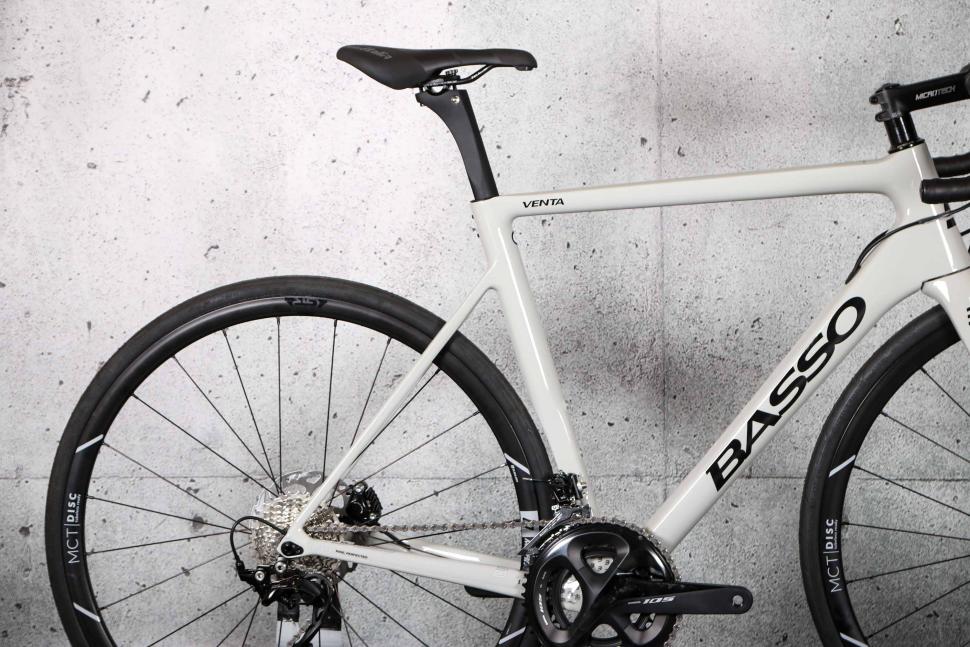

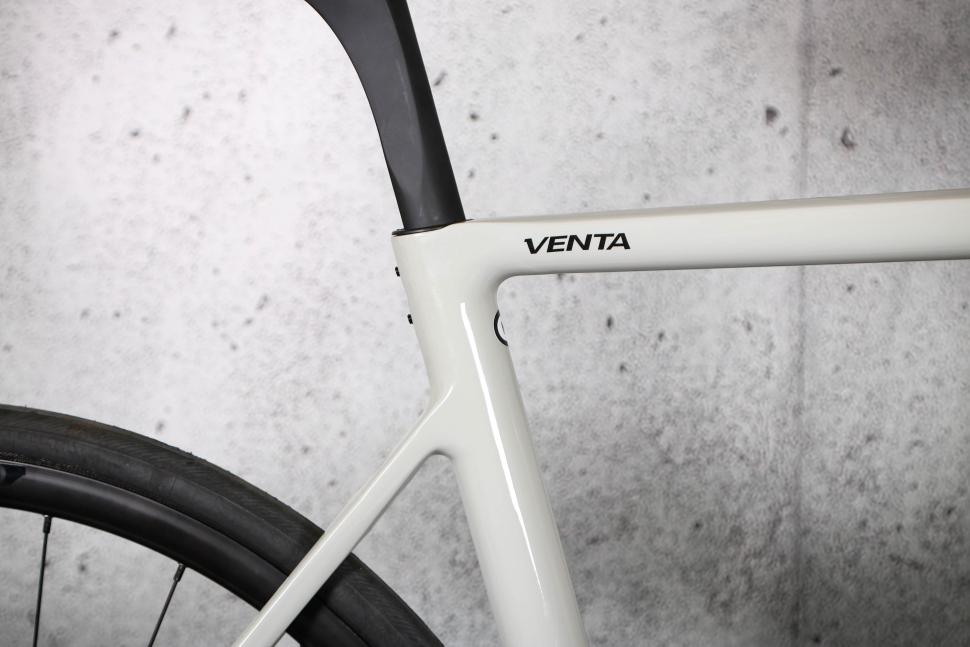
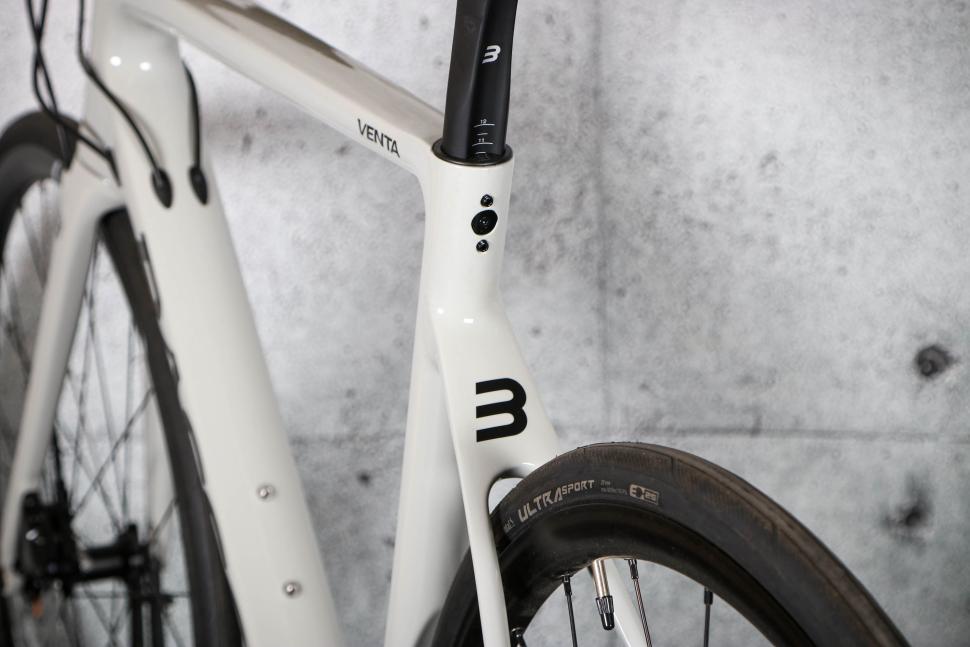
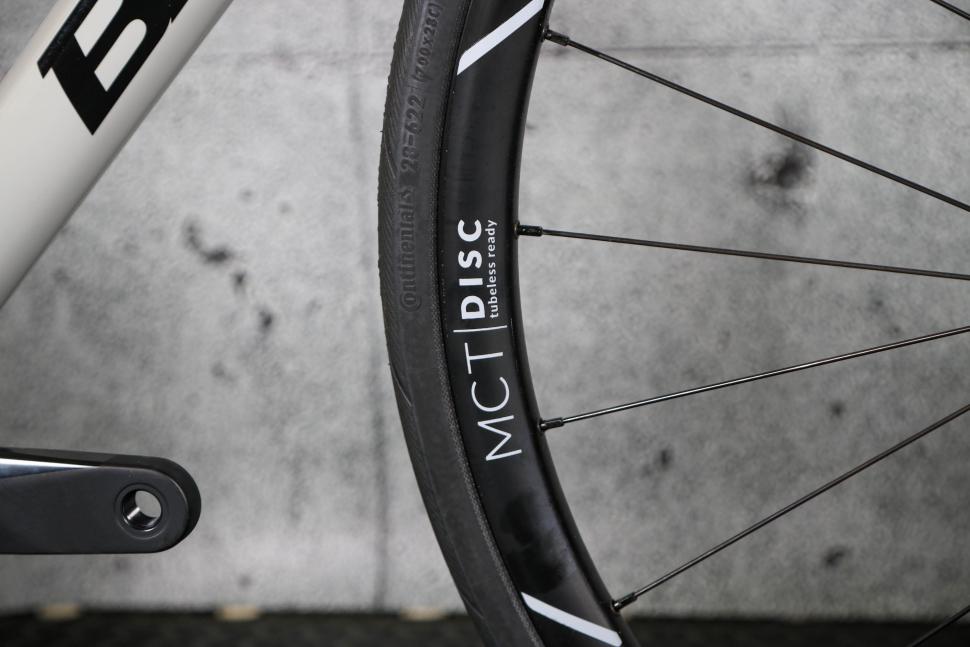
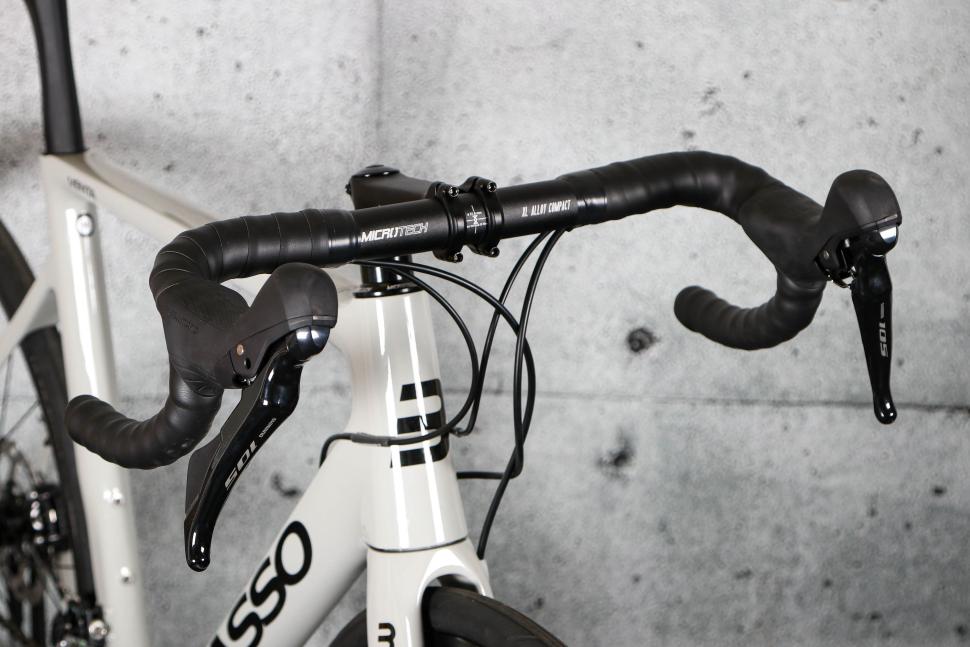
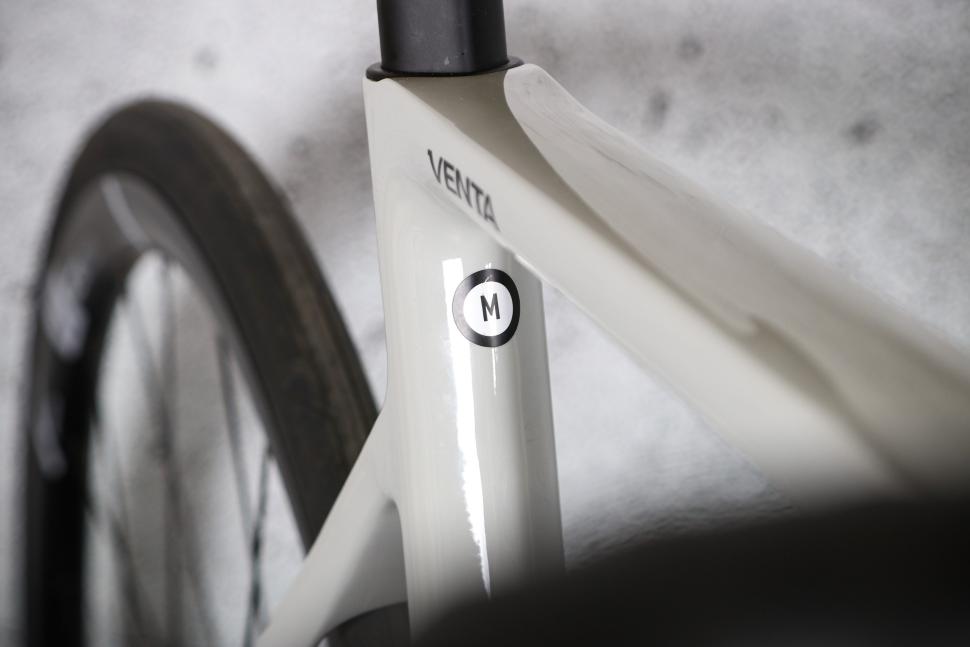
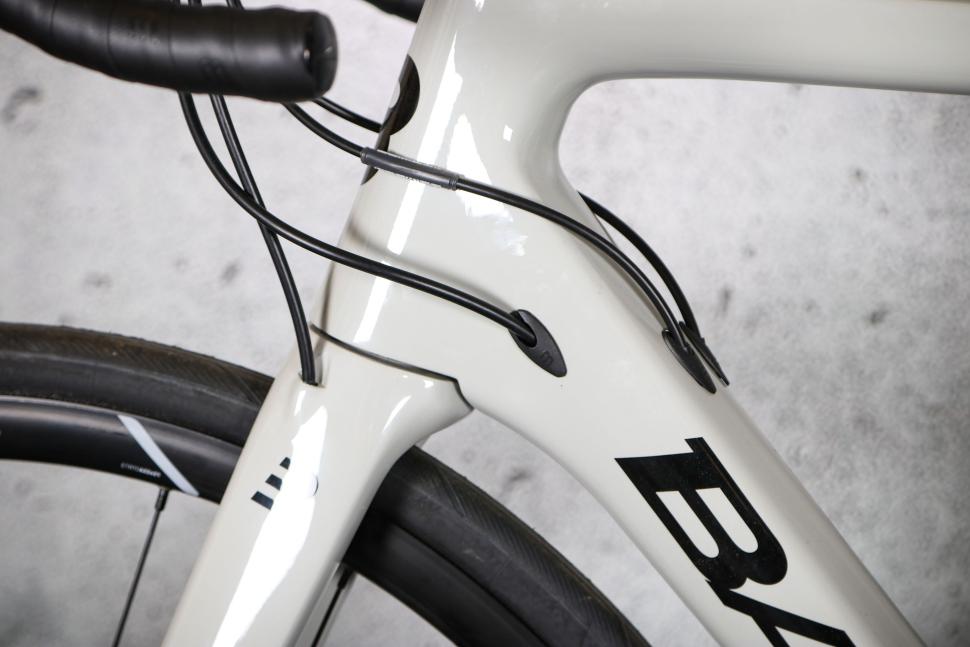
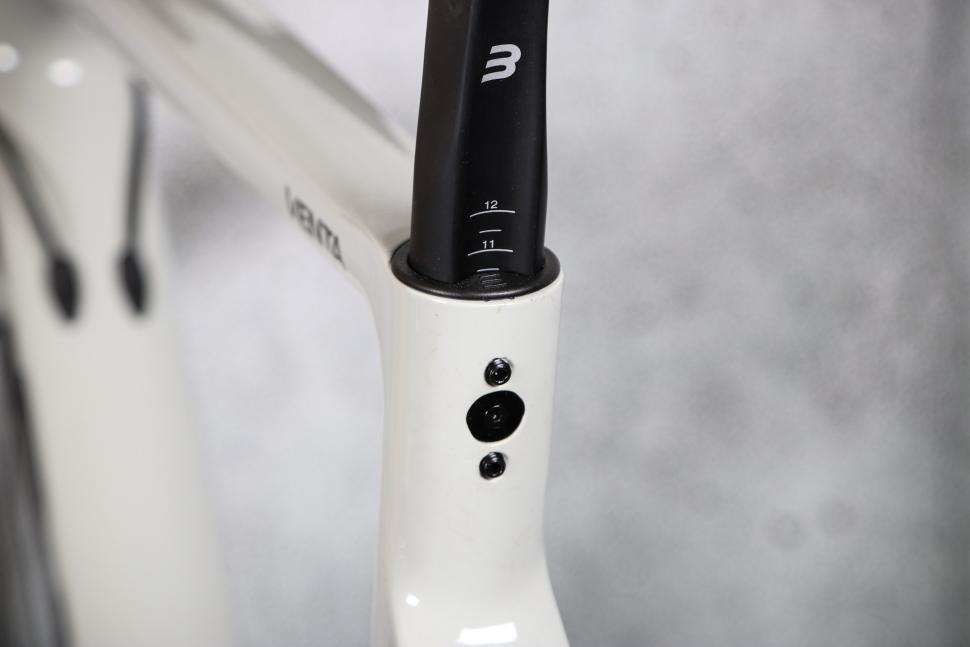
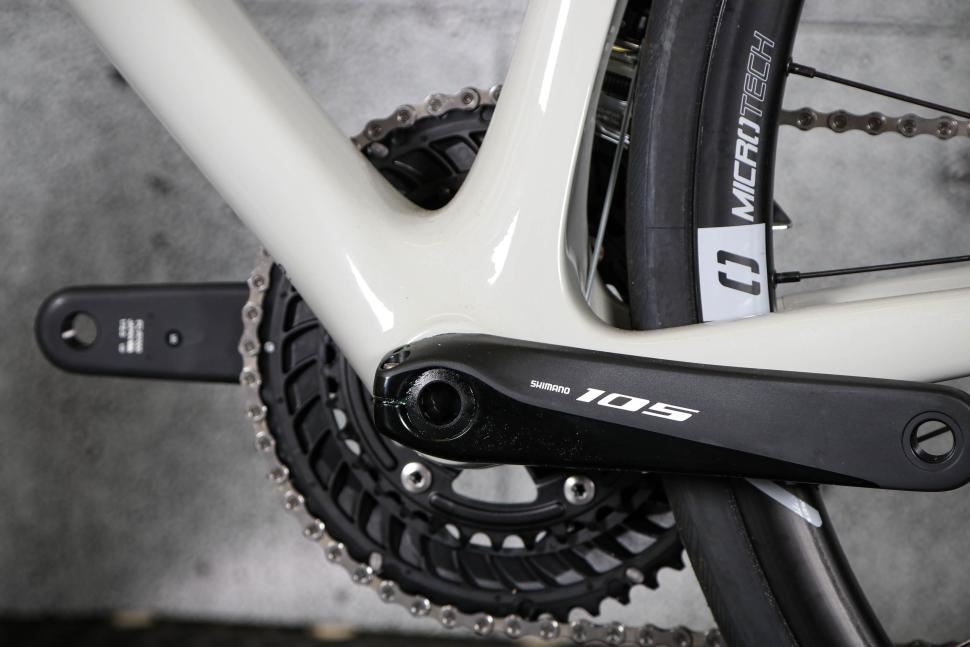

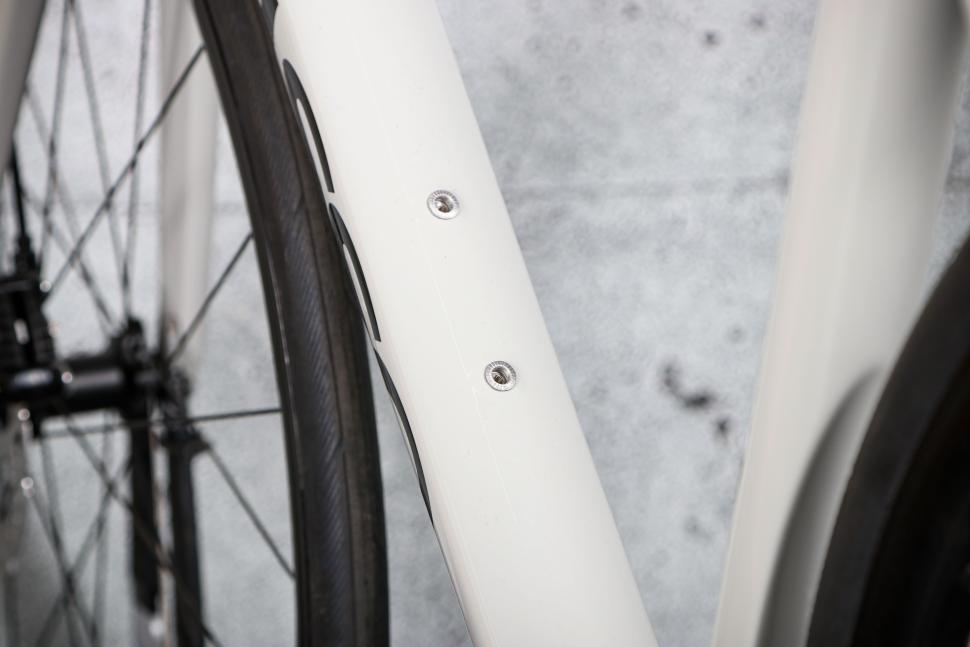
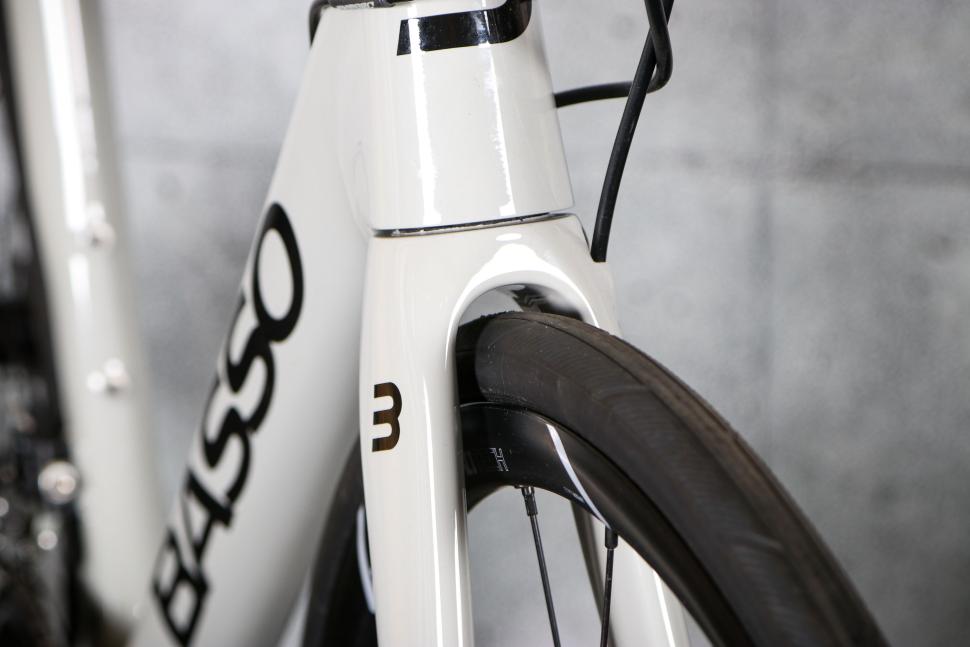
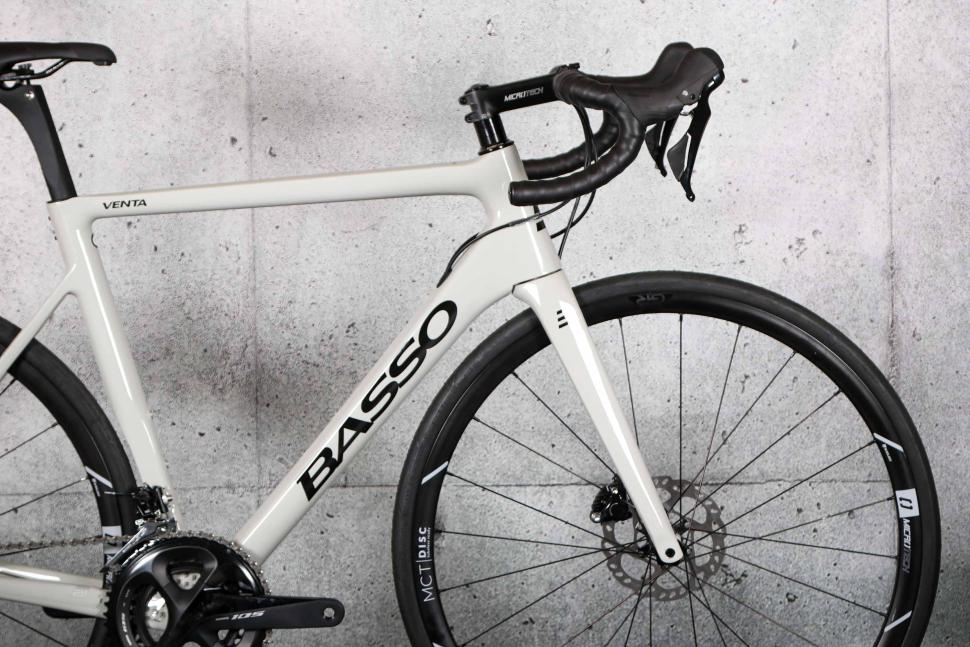
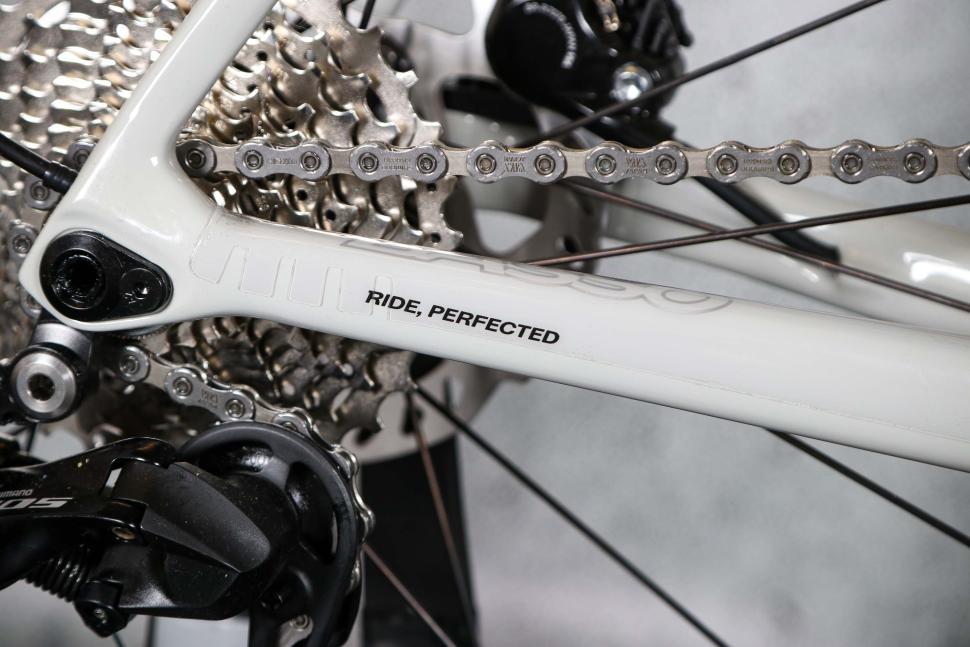
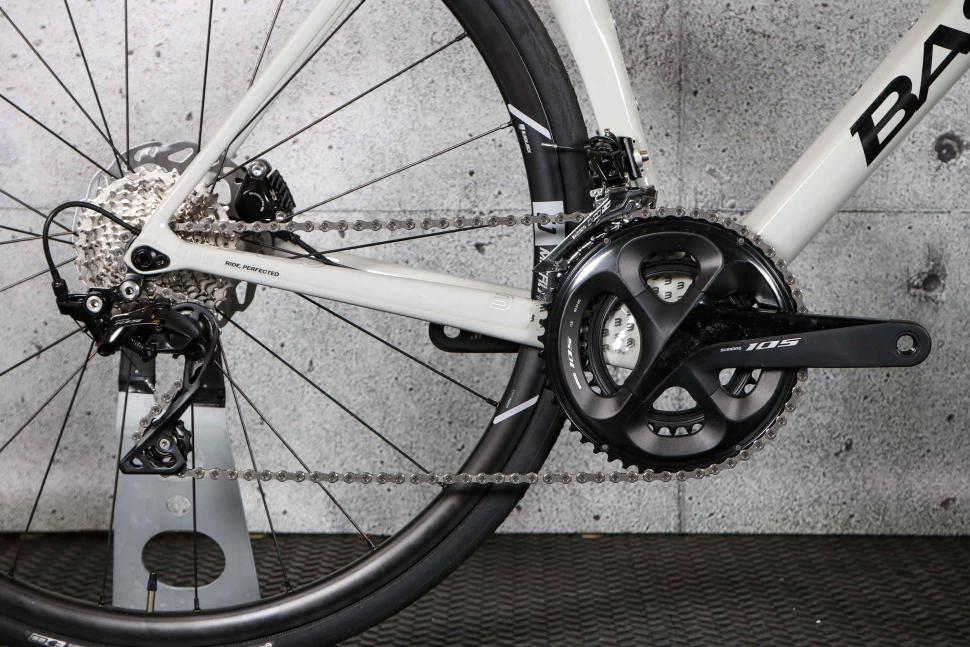
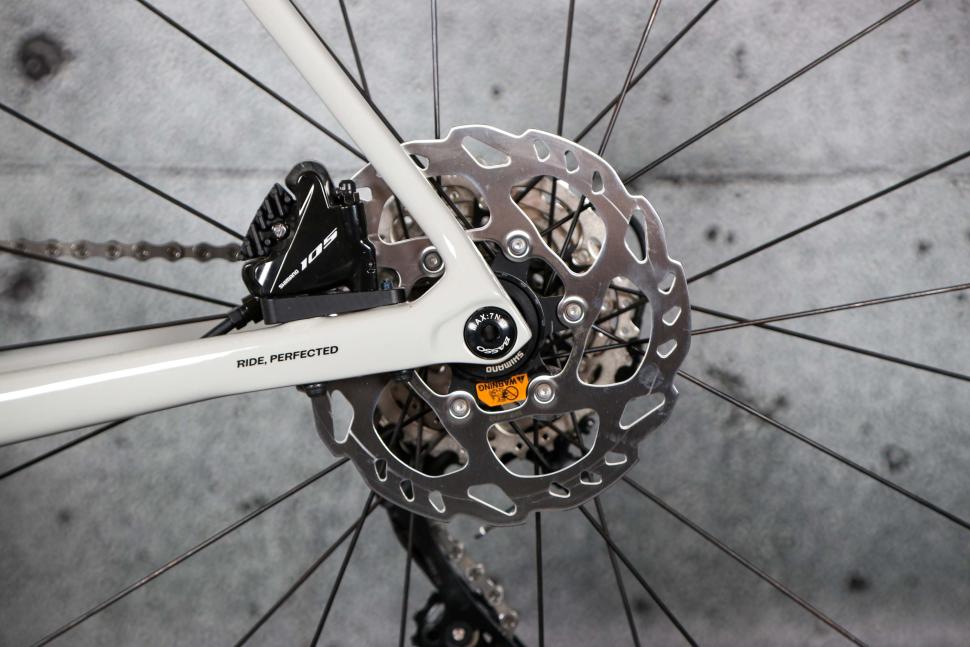
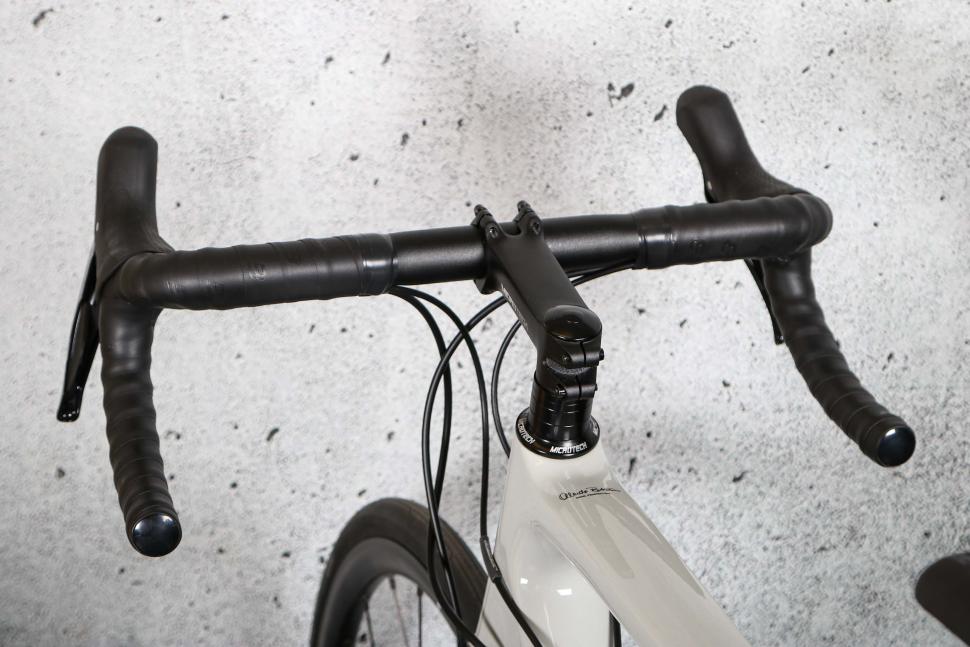
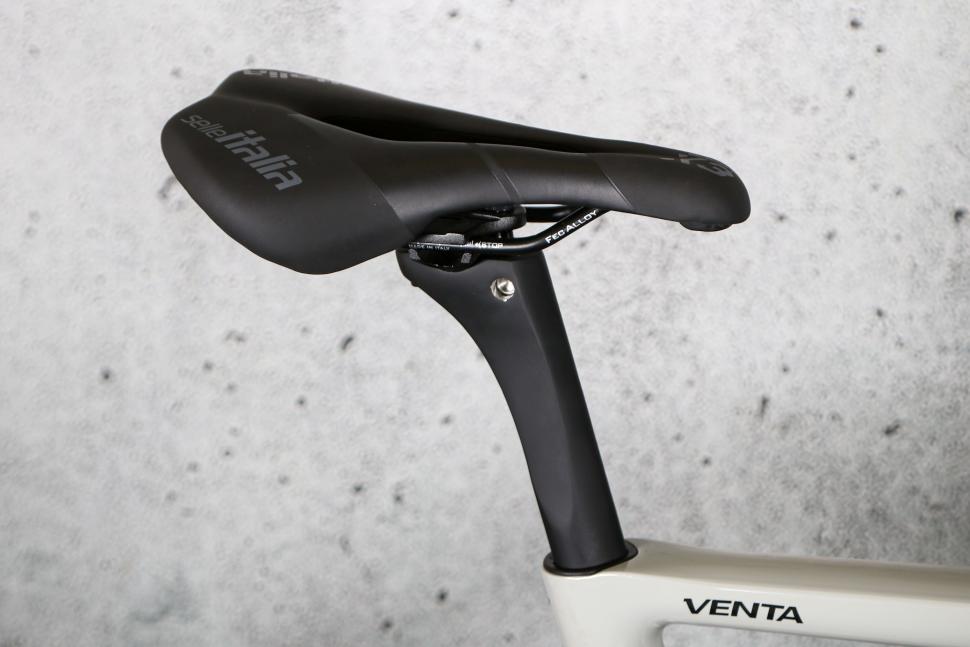
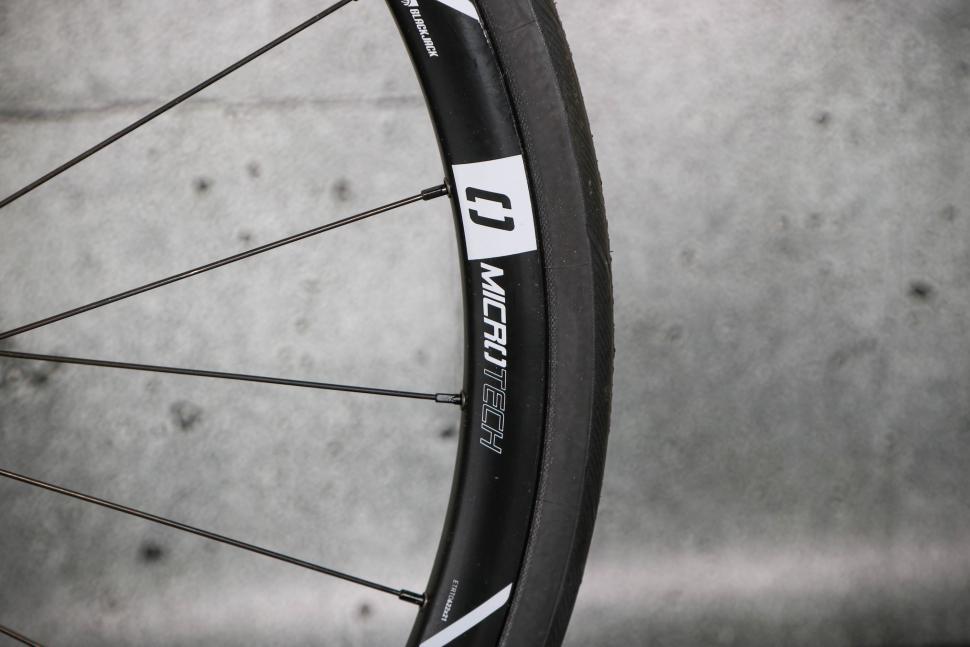
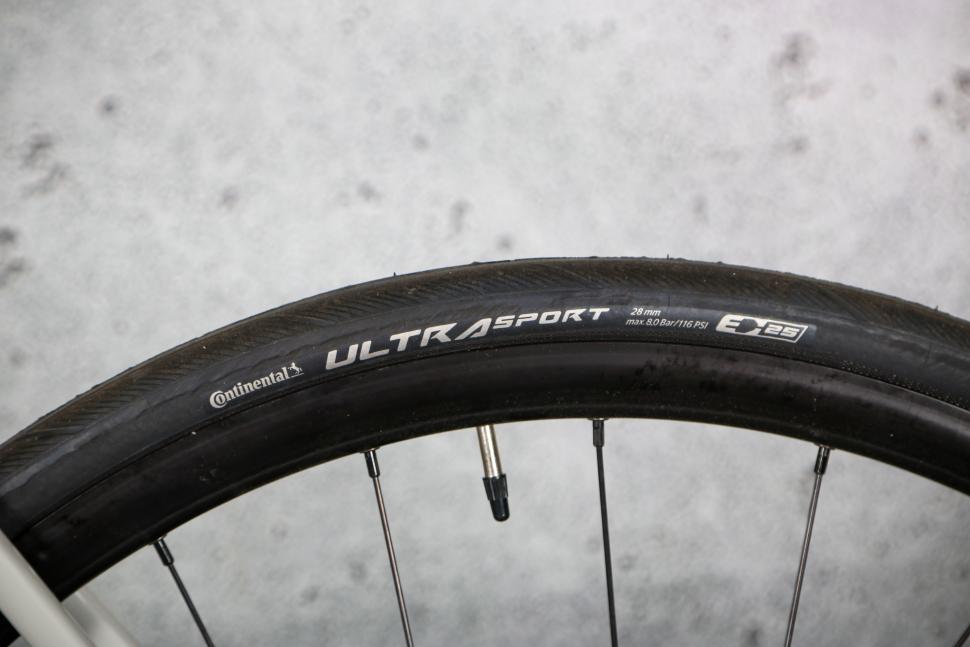
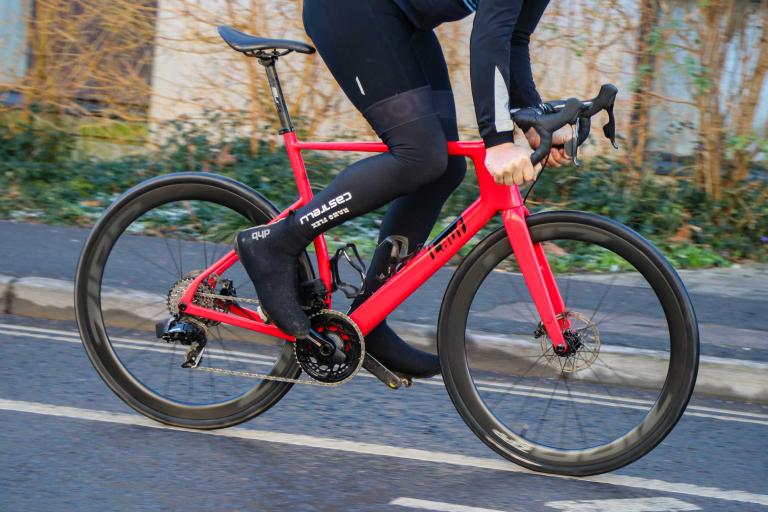
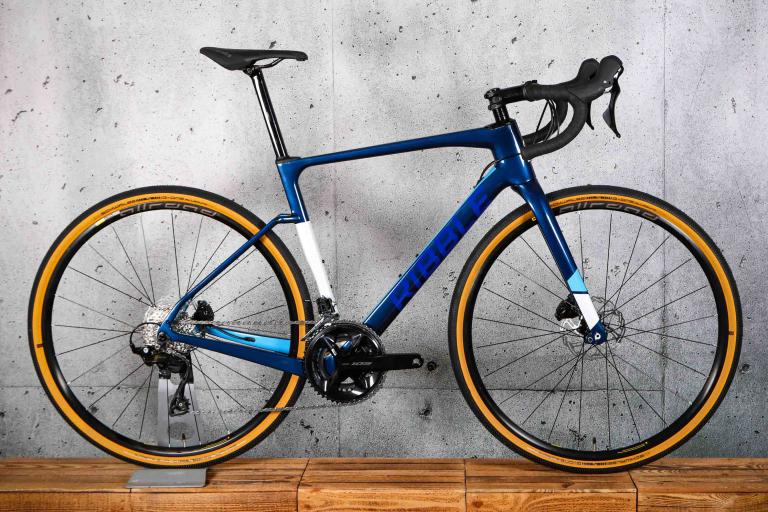
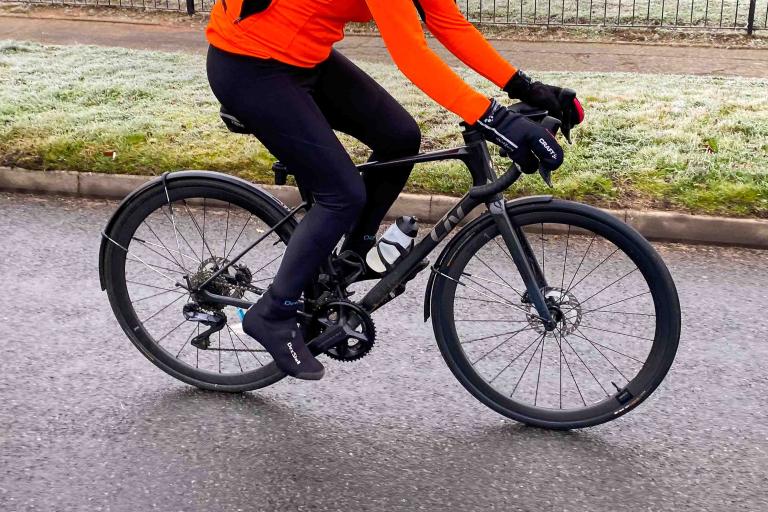
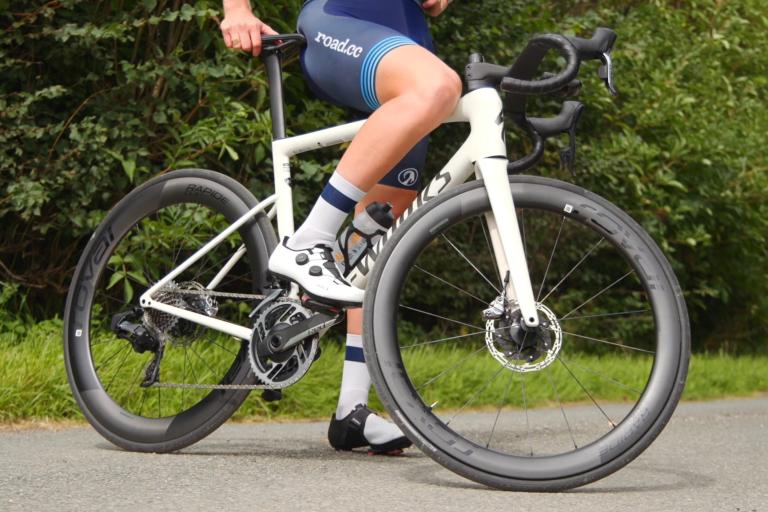
Add new comment
4 comments
I built up the rim brake equivalent frameset with existing Ultegra drivetrain and Fulcrum Racing 3 wheels, just under 7.8kg with pedals so reasonably happy with that although it didn't save much weight over the aluminium Rose frameset it replaced!
I agree with this though, the additional stiffness of the frame means my instinct is still just to stamp up climbs out of the saddle, until my legs run out at least! I also find I'm staying in the big ring longer, not necessarily because the frameset is any quicker than the old Rose, but because it really DOES demand to be ridden harder, I'll need to learn to sit up and take it easy again before attempting any big summer miles next year...
Just be careful what seatpost you end up with, mine was a single bolt version but was 'notched' such that you could only adjust the saddle in fairly large increments, mine was either pan flat or 5 degrees nose up/down. I wish it had come with the two bolt version pictured, means I could use a carbon railed saddle too without buying a replacement clamp...
No hidden cables is a big plus
Is it though? I recently replaced the gear cables on my 2021 Scott Addict (not the RC), which has the cables and hoses entering at the side of the headtube. Was still a massive PITA requiring use of cable liners over the existing inners to provide a routing sleeve through the downtube and through the chainstay. I say all in, or all out...none of this hald and half malarkey.
.